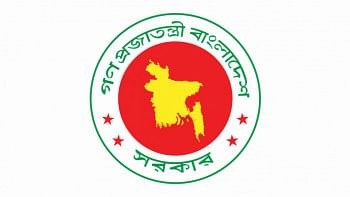Disgruntled, Putin quits G20 early
Vladimir Putin yesterday quit the G20 summit in Brisbane early saying he needed to get back to work in Moscow after enduring hours of browbeating by a succession of Western leaders urging him to drop his support for secessionists in eastern Ukraine.
Western leaders piled huge pressure on the Russian president at the Group of 20 meeting in Brisbane, with host Tony Abbott calling on Putin to "atone" for the shooting down of Flight MH17 over rebel-held eastern Ukraine and Britain's David Cameron branding him a "bully".
Putin was also apparently rebuffed by Canadian Prime Minister Stephen Harper when the Russian leader approached him.
"Well, I guess I'll shake your hand, but I only have one thing to say to you: you need to get out of Ukraine," said Harper.
The West this week accused Russia of sending fresh military hardware into eastern Ukraine, fuelling fears of a return to all-out conflict. Russia denies its troops are on the ground in Ukraine.
Analysts said Putin's apparent anger at his treatment by his fellow leaders could worsen the crisis in Ukraine.
Putin, who prides himself on his stamina, cited the "need to sleep" and a long flight home as his reasons for leaving the summit before the final communique was issued.
Despite the baking heat in Brisbane, the chill in the air was unmistakable, with Western leaders threatening new sanctions if fighting in Ukraine intensifies.
Australian tabloid The Courier-Mail called Putin "the black sheep of the G20 family," while Russian media complained that Western leaders went out of their way to ostracise him.
With the European Union poised this week to extend the list of people subject to asset freezes, the Russian president individually met five European leaders including the British prime minister, David Cameron, and the German chancellor, Angela Merkel, where he refused to give ground.
Putin instead accused the Kiev government of a mistaken economic blockade against the cities in eastern Ukraine that have declared independence in votes organised in the past month. He said that action was short-sighted pointing out that Russia continued to pay the salaries and pensions of Chechenya throughout its battle for independence.
In an interview with German TV he also accused the west of switching off their brains by imposing sanctions that could backfire.
Putin said: “Do they want to bankrupt our banks? In that case they will bankrupt Ukraine. Have they thought about what they are doing at all or not? Or has politics blinded them? As we know eyes constitute a peripheral part of brain. Was something switched off in their brains?”
The Russian leader also complained he had not been consulted by the EU about the recognition of Ukraine.
However, British officials insisted behind Putin's bluster, that they detected a new flexibility about the Ukraine orientating towards the EU so long as this did not extend to Nato assets being placed on Ukrainian soil.
“We are very clear with Russia that the continued destabilisation of Ukraine is simply unacceptable. If Russia continues to destabilise Ukraine there will be further sanctions. President Putin can see he is at a crossroads,” British Prime Minister Cameron said in his own press conference.
Obama said Russia had failed, in spirit and letter, to adhere to the Minsk agreement signed in September, and that while the US was not actively considering further sanctions on Russia, it would consider increasing the pressure on Moscow if Russia's intransigence continued.
But Russia would remain isolated, Obama said.
The crisis has been deepened by the creation of the declared Donetsk People's Republic (DNR). Earlier this month the region occupied by separatists for six months organised an unauthorised vote to appoint a prime minister. The Ukrainian prime minister, Arseniy Yatsenyuk, announced in response that all state funding would be cut off, arguing that the elections violated the Minsk peace accords signed in September.
Nato claims 300 Russian troops remain in Ukraine training the separatist forces ahead of likely fresh offensives.
Although the western media has portrayed Putin as an isolated figure at the summit, he has continued to forge close relations with the Brics countries (Brazil, Russia, India, China and South Africa).

 For all latest news, follow The Daily Star's Google News channel.
For all latest news, follow The Daily Star's Google News channel. 



Comments